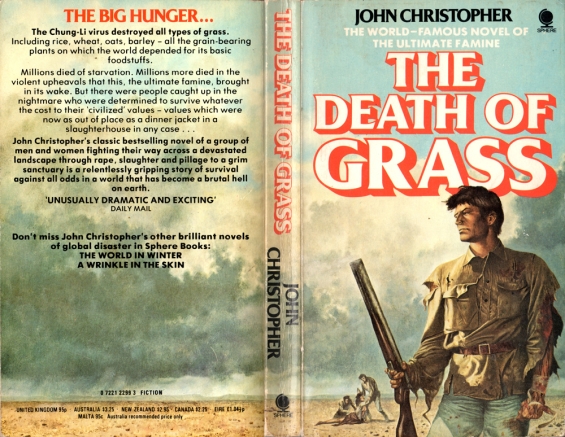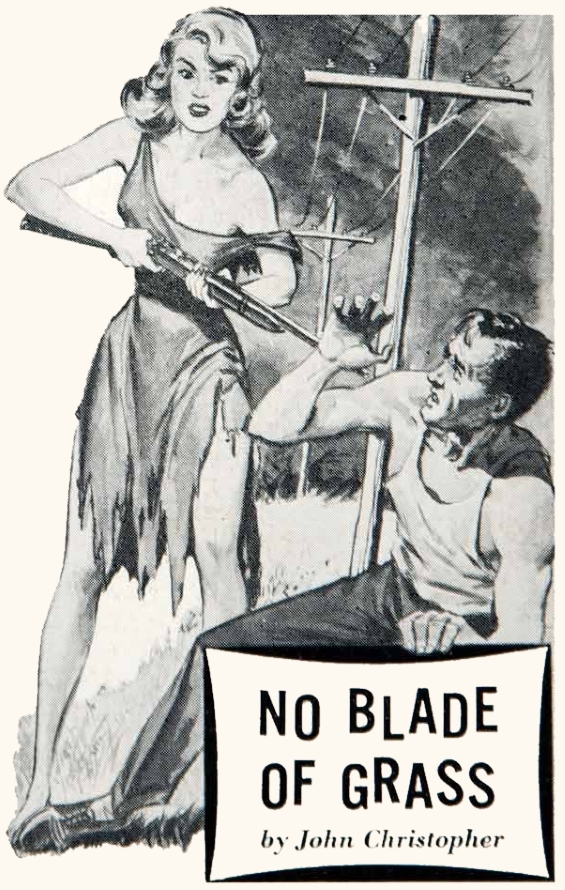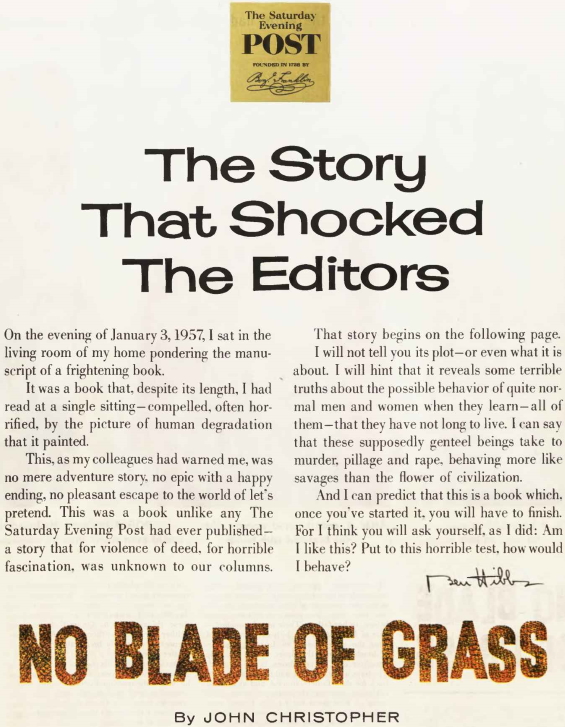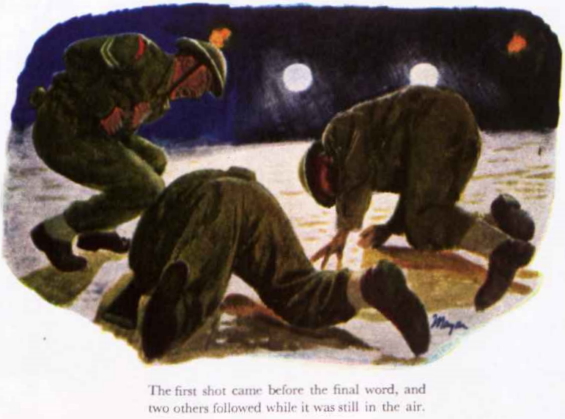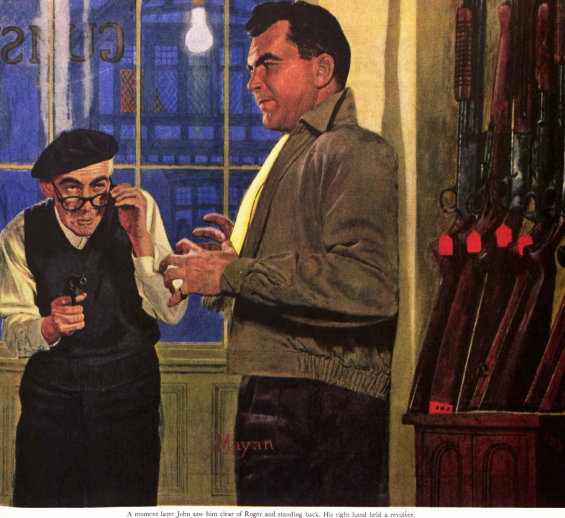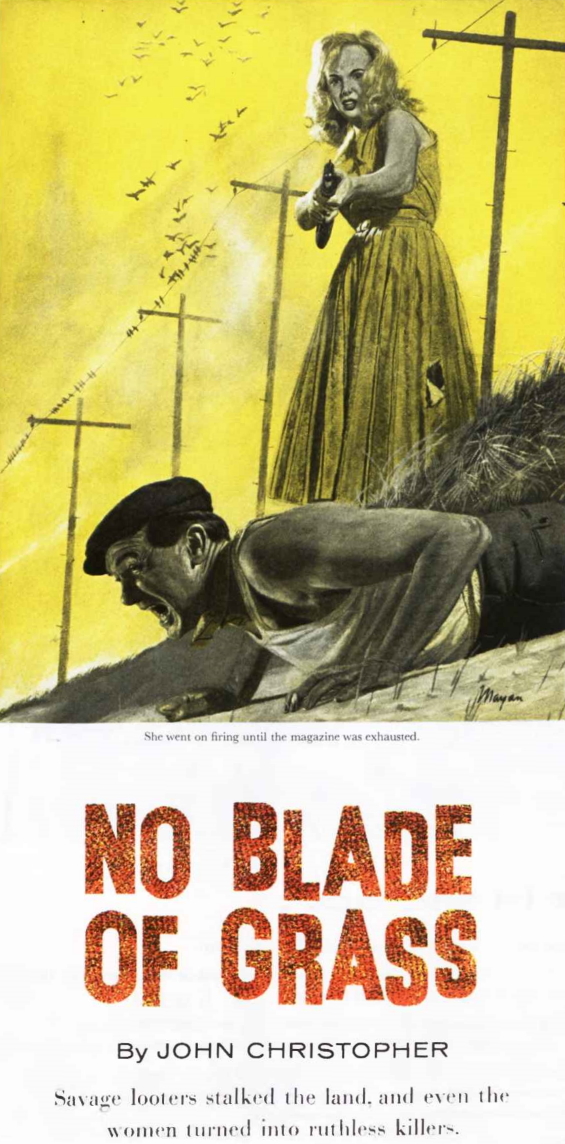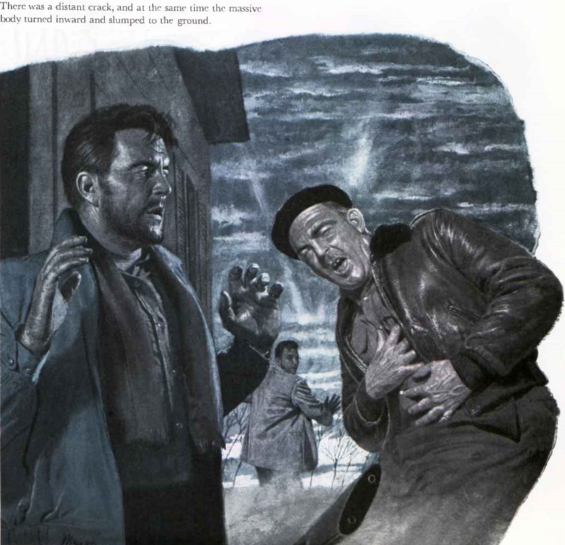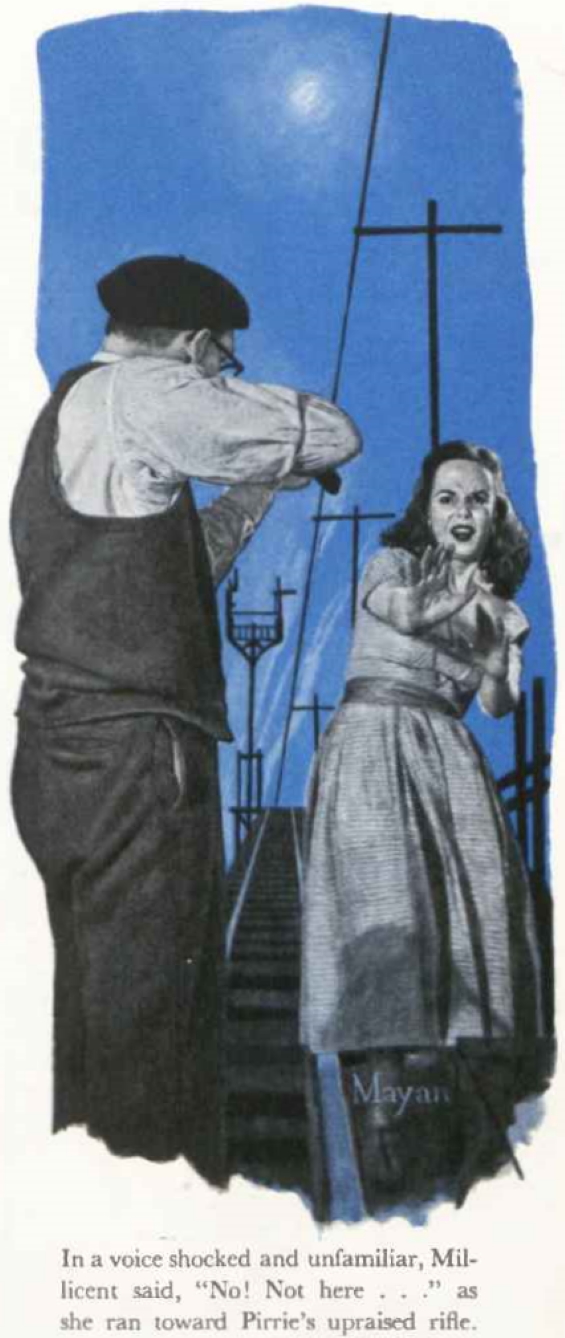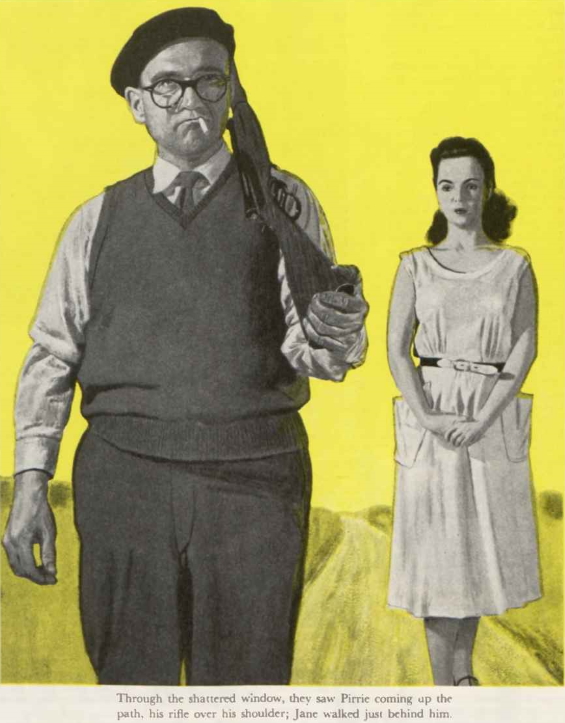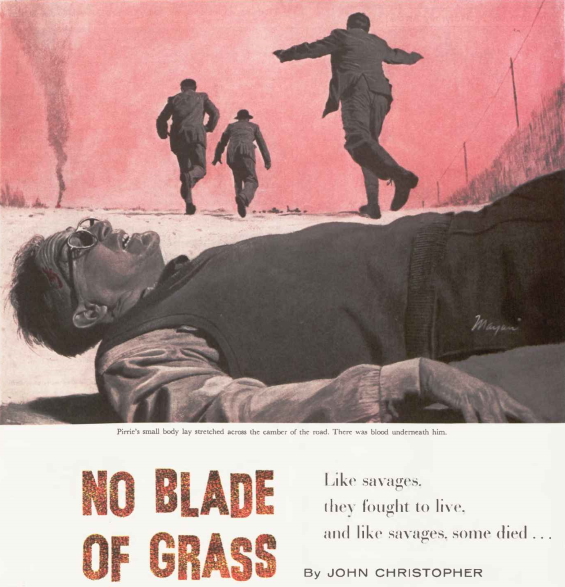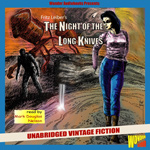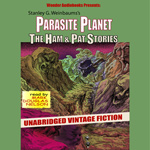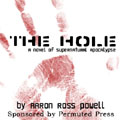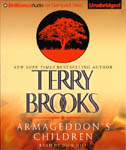
 The SFFaudio Podcast #073 – Jesse talks with Luke Burrage and Gregg Margarite about the Audible Frontiers/Brilliance Audio audiobook of Earth Abides by George R. Stewart!
The SFFaudio Podcast #073 – Jesse talks with Luke Burrage and Gregg Margarite about the Audible Frontiers/Brilliance Audio audiobook of Earth Abides by George R. Stewart!
Talked about on today’s show:
Earth Abides by George R. Stewart, New York City, Lucifer’s Hammer by Larry Niven and Jerry Pournelle, the best post-apocalyptic novel, a lost classic, a calm method of exposition, a student of history, Isherwood Williams, very vivid and deeply imagined, how do you define Science Fiction?, Flowers For Algernon by Daniel Keyes, philosophical nuts and bolts, the central crisis is left unexplained, the science in Earth Abides, “I understand people better after reading this book”, breeding cycles, Hard Biological Science Fiction, the disappearance of lice, overpopulation of the Earth, is it the author speaking or is it the main character?, ecology, there was no will to power, only a will to live, Baruch Spinoza, Arthur Schopenhauer, Friedrich Nietzsche, I can’t believe how long it took the guy to get to the library!, “how to render game”, “there’s lots of library love in this book”, “we’re not going to be the people that we were”, “the characters had to be ignorant out of laziness”, 1947, going to university, mediocrity is well loved, “why is dumb so cool?”, only people who are intelligent enough to ask the question…, does genius beget genius?, is intelligence particularly related to genetics?, nature/nurture, eugenics, is intelligence a particular interest rather than something in the brain?, superior interest vs. superior brainpower, Evie, finding the test, the IQ test, the observer’s position in the universe, “do you think what the government did to Alan Turing was wrong?”, the Apple logo inspired by Alan Turning’s suicide?, snopes.com, I knew I wanted to be friends with Gregg Margarite, LibriVox.org, the San Fransisco tribe, you cannot spoil this book, WWII, cargo cults, “would you ever be a member of a cargo cult?”, Montezuma and Quetzalcoatl, The Gods Must Be Crazy, religion, superstition, pinch your God, if God lived on earth people would break his windows, tribal sociological phenomena, the role of chiefs, the most interesting book about pinching I’ve ever read, “heartwarming pinching”, reading, despondence and acceptance, what does it really matter if humanity is dead?, The Star by Arthur C. Clarke, intellectual arguments vs. emotional arguments, it’s very rare to be emotionally affected (to tears) by a book, narrator Jonathan Davis, The Windup Girl by Paolo Bacigalupi, one of the best narrations that I’ve heard, Mike Resnick‘s Starship series, Star Wars, Connie Willis‘ introduction to Earth Abides, Deep Six by Jack McDevitt, “always skip over the introduction”, where does Isherwood’s name come from?, forgetting your own name, the character of Jack, I don’t read for characters, Isherwood thinks he’s an intellectual, Robinson Crusoe by Daniel Dafoe, The Swiss Family Robinson by Johann David Wyss, “I would have taken out Electromechanical Engineering“, Emm and Ezra, Charlie, George (the carpenter/plumber), “even his dog (Princess)”, a friend’s quiz, people are not just what they know or what they read, The Hitch-Hiker’s Guide To The Galaxy by Douglas Adams, “society is all the different bits and humanity is all the different bits”, adopting leaves as a currency, maybe the whole of Douglas Adams should be treated like a religious text, The Hitchhiker’s Guide To The Galaxy is a book about itself, Doctor Who, the dish of the day, other themes in Earth Abides, racism in Lucifer’s Hammer, what race is Emma?, does it matter?, the last American, people who are racist are people talk about race, race is a sociological idea, race is something – but it is not science, “I don’t live the history”, “they need to have somebody who are below them on the ladder”, Fox News, ideological reasons for watching TV, Glenn Beck is Mormon, Mormons believe that the Constitution of the United States was “divinely inspired”, his country is part of his ideology, the reason Orson Scott Card hates gays is because of his belief system, newspapers still have an Astrology section, there is no hegemony in Earth Abides, individuals interacting with one another, “people abide”, are you born of another?, matriarchy vs. patriarchy, “Is it a talisman? a totem? It’s single jack!”, “the power to destroy and drive in a nail”, a genius accident, the word “jack” means “doer”, Jack Bauer, semiotics, Jesus freaks vs. religious freaks, separating the voice of the author from the voice of the main character, The Last Man On Earth, The Last Man On Earth Blog, I Am Legend by Richard Matheson, Life After People, George R. Stewart wrote a biography of Bret Harte, Harte is far more complex than Louis L’Amour, Oakland, Mark Twain, recording for LibriVox.org, 2BOR02B by Kurt Vonnegut, we all know that Science Fiction has been carrying this burden, iambik audio, recording a 600 page book on the road, $1000 microphone, The Secret Of Kralitz by Henry Kuttner, The Ego Machine by Henry Kuttner, the Del Rey “best of” books, The Best Of Jack Williamson, Frederick Pohl, Luke rates Earth Abides 4.5 out of 5 stars, “it’s good because it’s not very good in this way”, did it achieve what it set out to accomplish, The Incredible Shrinking Man by Richard Matheson, we are thoroughly impressed, Earth Abides is 13 CDs 15 Hours, time passing, the loss of reading, is literacy in and of itself a good?, giving the book away, separating technique from practical skills, bull dodging, Make Room, Make Room by Harry Harrison, Soylent Green, get Charlton Heston out of your head but keep Edward G. Robinson, The Omega Man, potential upcoming SFFaudio Readalongs, Ubik by Philip K. Dick, The Man In The High Castle, Do Andoids Dream Of Electric Sheep?, Valis, The Transmigration Of Timothy Archer and The Divine Invasion, Leo Tolstoy, the philosophy of art, “the only true art is folk art”, art is an abbreviation of the word artifact, a nuclear bomb is art to me, labor intensive art, venus figures, craft vs. art, I don’t think art has a place in this book?, I’m pretty sure something is going on about art in this book, I see similarities between petroglyphs and Pollock, maybe I was wrong, are we post structuralist, Duchamp, Aristotle’s Poetics, Seven Samurai, Rashomon, David Lynch’s Dune, Laurel and Hardy, Gilligan and the Skipper, Akira Kurosawa, George R. Stewart basically invented the disaster novel, Ordeal By Hunger by George R. Stewart (available from Blackstone Audio).
Posted by Jesse Willis

 The SFFaudio Podcast #180 – Jesse, Tamahome, and Jenny Colvin talk about The Death Of Grass by John Christopher.
The SFFaudio Podcast #180 – Jesse, Tamahome, and Jenny Colvin talk about The Death Of Grass by John Christopher.